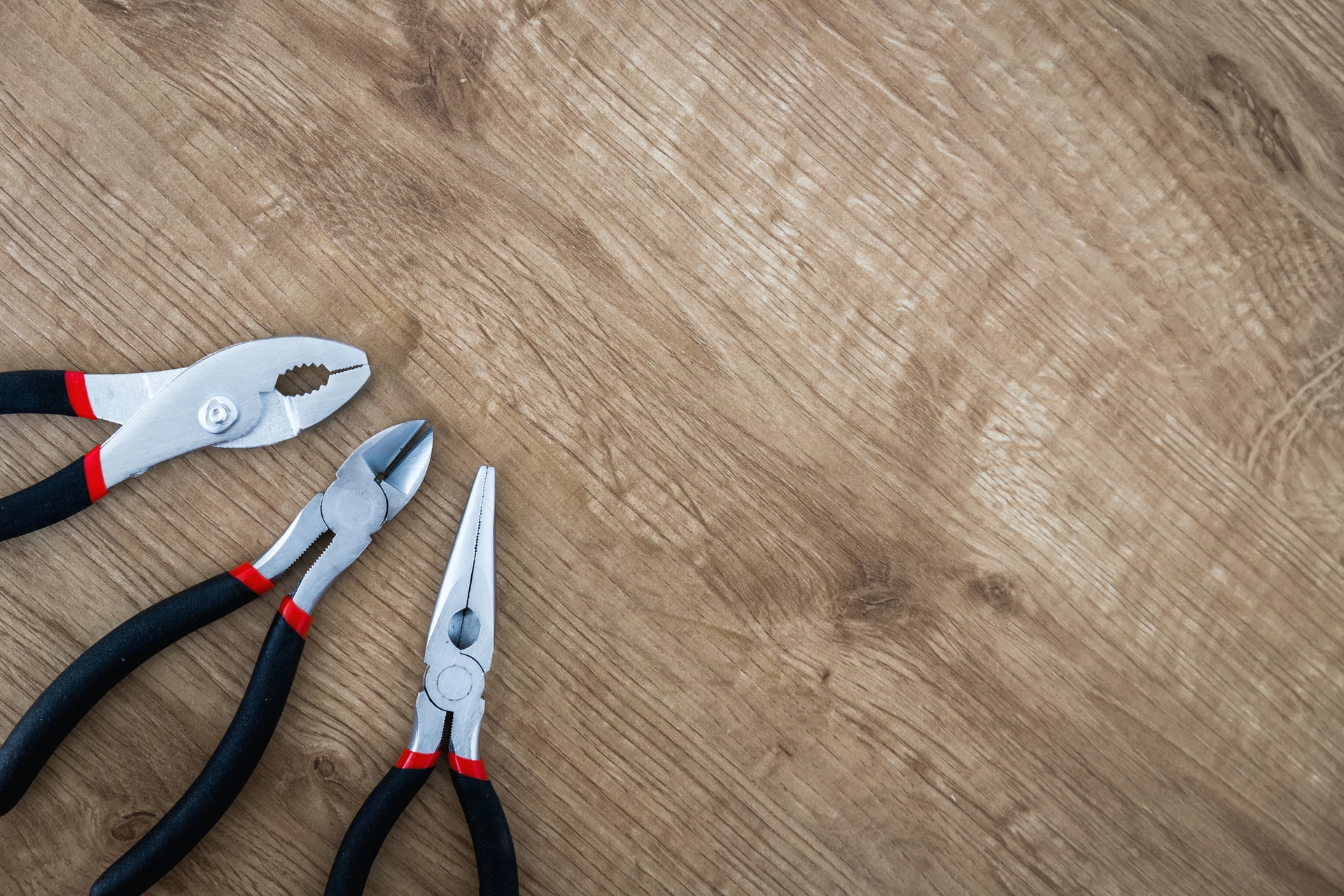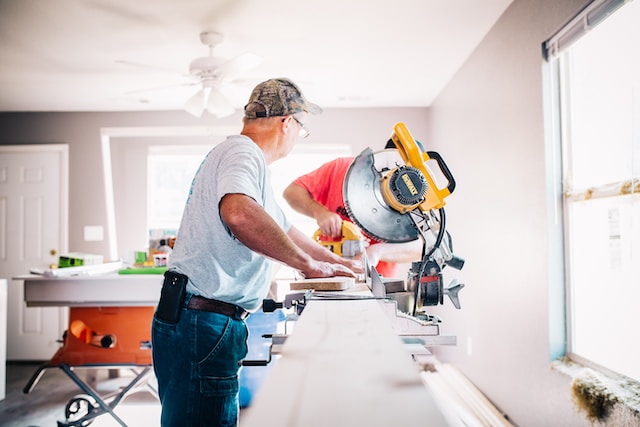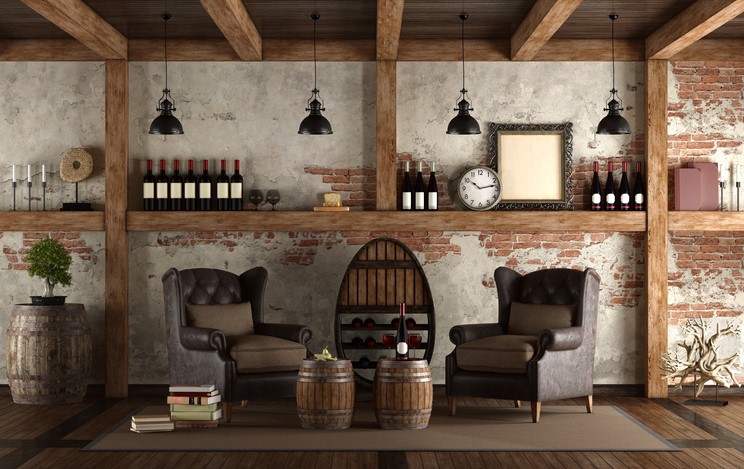Our home is our safe place in the world, it’s where we relax, enjoy ourselves with friends and family, and nowadays, for many, it’s also their place of work.
Whether you’re looking to repair and maintain your home or you’re looking for repairs that may be required if you’re looking into purchasing a home, this article will be a practical guide on what to look for and the most common repairs a home will need. Remember you can also do a DIY home inspection to get an idea of what repairs are a must.
We give maintenance to our valuable possessions to keep them in pristine conditions, such as our car, our bodies, and even our shoes! But many times, we neglect to see what repairs and maintenance our home needs.
We pay attention to the decor, renovate furniture, paint the walls, and other esthetic details, but what about other important aspects, such as the gutters, the roof, the windows, pest control, and many other essential things for our home to be safe and in optimal conditions.
In this article, we reached out to experts in different areas of home maintenance and asked all the important questions to learn how to keep your home in a pristine condition.
Mold and Pests
What’s a common pest people tend to ignore until it gets really bad?
“The NPMA estimates that termites cause up to $5 billion in property damage each year. Although this figure sounds staggering, termite damage often goes undetected. Many homeowners don’t realize they have termites until they see visible damage such as bulging walls, sagging floors, and sticking doors. Even home exteriors that aren’t made of wood are not exempt from termite damage. Termites can get past metal and vinyl siding, plaster, and other exteriors. Once inside, they feed on floors, ceilings, cupboards, and furniture. This subterranean pest is the greatest threat a homeowner can face.”
– Mindy Perales | Rottler
What are common mistakes people make when trying to remove mold by themselves?
When a DIY type of person dives into removing mold on their own, they often make the problem worse. Bad remediation is worse than no remediation at all. Mold spores are microscopic and you cannot see them with the naked eye. During mold removal, engineering controls need to be put in place to inhibit spores from migrating to other areas that are not affected. Plastic barriers and negative pressure is used to prevent cross-contamination from happening. Most DIY people do not understand this concept and without doing it properly, you will just cause a bigger mess. Another common mistake is the use of bleach or other chemicals. Many people think that we just spray chemicals on mold and the problem will go away. Further bleach does not kill mold! We are in the business to remove mold, not kill mold. Simply killing it does not take the health risk away. The same also goes for using the right products. Many times I see them using products that are not formulated for mold. The third item that I see goes back to the first. People will just start tearing into things without having any idea what the extent will be. When it turns into a lot larger problem, they simply are not prepared and it turns into a bigger problem than what they started with.
– David Bayne | A1 Mold Testing and Remediation Services
Heating & HVAC
How often should the HVAC ducts be professionally cleaned and what are the consequence of not doing so?
“If you have never had a duct cleaning done before, get one done immediately. Secondly, we recommend 1 every 4-5 years. If there are pets or smokers in your home, we recommend duct cleaning more often. The consequence of dirty air ducts is poor indoor air quality due to dust, pollen, and mold being circulated through your home. Poor indoor quality can affect your health and may cause exasperated respiratory or allergy symptoms such as sneezing, coughing, sore throat, burning eyes, etc. People with pre-existing conditions like Asthma or other illnesses are particularly vulnerable to the negative effects of poor indoor air quality. For a free duct cleaning estimate, please call 561-686-8926 and mention this article for $25 off your duct cleaning appointment.”
– Caroline Gay | Envirotech Air Quality Services
Air quality is fundamental for our health, how can someone measure the air quality in their home, and what can they do to improve it?
“Advancements in technology mean that it is easier than ever to test the quality of the air in residential homes. There are a wide range of affordable testing kits on the market, with many types of pollutants easily monitored, including allergens, mold, CO2, formaldehyde, VOCs, and more. Using these devices, along with air purification appliances and natural products such as household plants, beeswax candles, and essential oils can help improve air quality for you and your family.”
– Josh Mitchell | AirConditioner Lab
Plumbing
Plumbing is probably one of the trickiest parts of a house on wheels, such as a bus adaptation or an RV, what’s the number 1 thing people should have in mind regarding plumbing in a house of wheels?
When can you unclog a drain on your own, and when is it time to call a plumber?
“Most toilet clogs can be handled by almost anyone equipped with a plunger, or toilet auger, and some basic instructions. And sometimes small drain clogs (sinks, tubs, floor drains) can be remedied by using something as simple as a coat hanger to remove a clump of hair, or other types of blockages if located near the opening of the drain.
But for deeper clogs, both in small drains and the main sewer line (you can usually tell if it’s a main sewer problem if multiple drains are backing up) we recommend hiring a plumber. The power equipment typically used to clear such clogs requires specialized know-how, and can cause serious injury to anyone without the proper training or experience.”
– Simon Raczkowiak | The Scottish Plumber
What should people give professional maintenance to and frequently neglect to do so?
“Your Hot water system is without a doubt the hardest working appliance in your home, yet it is also one of the most neglected items within your home, Most people have no idea what type of water heater they have let alone the size/capacity, Brand or even the age.
Did you know that you should have your hot water system serviced at least every 5 years, and replaced about every 10 years?
It goes without saying, Regular check-up or maintenance on our hot water systems or any plumbing fixture and fittings will give them a longer life and along with more efficiency and effectiveness. Does this make our property attract beauty and get more valued?
In actual scenarios, most people neglect professional maintenance cause they lack information and knowledge they think is a waste of money and time. More regular maintenance can save a lot of money and time because we can know what property is not working and fix it immediately.”
– Joe Evers | The Plumbing & Electrical Doctor
What’s the most common problem people try to fix on their own and they end up making it worse?
The most common one that we have is when the customer attempts to take off a radiator and they don’t support the radiator valves properly.
This causes the pipe-work to get damaged resulting in a leak and an emergency call out and repair.
– Gareth Knell | GK Plumbing
What tips do you practice at home to keep your pipes in optimal condition?
We have a “no grease down the drain” policy at our home. Grease goes into a coffee can we keep under the kitchen sink. Also, it’s important to run a sufficient amount of water when you’re putting food waste in the garbage disposal. How much is enough? If you don’t run enough, you’ll know because the disposal will plug.
– Tom Thornton | Sav-On Plumbing
Roof & Gutter
What should homebuyers look to ensure the health state of the roof of a house they’re thinking of purchasing?
“First, find out the age of the roof. If it’s 20 years or older, the house probably needs a new roof. From the ground, look for roof algae and buckling or missing shingles. From the inside, check the ceilings for water damage. These are all signs you need a new roof. Of course, it is hard to tell from the ground how much damage has been done. In these cases, trust an expert to inspect the roof and give their professional opinion.”
– Ryan Gorenflo | Mr. Roof
What are common gutter problems according to each season?
How to know when the roof can be repaired and when it’s time to replace it? How often should a roof be replaced?
“Almost any roof can be repaired within in the first 15 years. After that shingles become harder to repair due to the brittleness caused by the weather elements. Typically when you decide to repair or replace comes down to the cost. If a repair cost is 20% or higher you may want to consider a roof replacement. We’re finding the Insurance company is requiring homeowners to replace roofs in 15 year periods. I recommend replacing your roof every 18 to 20+ years and every roof should be checked by a professional every 1-3 years for any maintenance that may be required to extend the roof life.”
– Cheryl Reisman | Eustis Roofing
Home Areas
The kitchen gets daily heavy use, what are some helpful tips to keep the kitchen cabinets in great condition?
“The kitchen is the hardest working room in your home and things get messy in a hurry. Here are three easy tips to keep your cabinets looking great. 1) Clean up spills and drips when they occur. Water, grease, and acidic foods left for a period of time will erode the finish of cabinetry; 2) Never use harsh chemicals or scrub pads to clean cabinetry. Stick with warm water diluted with a mild, clear or white, dish soap using a soft cloth and rinsing often; and 3) Clean and wipe down all of your cabinets at least twice a year, again, using warm water and mild dish soap. A good solution mix is one squirt of mild soap per one quart of warm water. Dust, combined with steam and grease in the air, creates a film that settles on your entire kitchen over time.”
– Dan Jones | CliqStudios
Doors & Windows
What type of windows do you recommend to keep a home better insulated?
Before we recommend a specific type of window that performs well in extreme weather, we should mention that there are a number of factors that play into our recommendation.
Vinyl windows’ benefits are immense due to their energy efficiency and durability. However, you also need to consider the price point, glass quality, and if you need a custom solution to satisfy your vision. When choosing the best window design and configuration, there are a multitude of factors to consider. The type of material and how durable it is, the styles available, energy-efficiency levels, glass quality, and customization are just a few.
The window material chosen needs to be suitable for the weather conditions of the area. Vinyl windows are virtually maintenance-free once installed, saving time and effort. Vinyl is also the way to go if energy efficiency and insulation are priorities. This material effectively reduces heat transfer, allows light penetration, and regulates a room’s internal temperature. Vinyl is also easy to install because of its flexibility.
One of the hottest claims associated with windows today is a substantial reduction in heating and cooling costs. Energy efficiency is at the top of everybody’s mind – especially in extreme temperatures. Many homeowners want to know exactly how much they’ll be able to save and how long it will take for their windows to pay for themselves. The truth is, many factors go into the answer. When trying to improve energy efficiency, you need to look at four factors: frame, glass, design, and installation.
A well-constructed, properly installed vinyl window can be a fantastic choice for your budget — while still offering excellent energy efficiency through insulated glass and tight construction that drastically reduces air infiltration. When it comes to glass, there are two crucial things to consider.
To qualify for ENERGY STAR status for energy efficiency, window manufacturers must meet standards for two primary metrics: U-value and SHGC. U-value measures a window unit’s resistance to heat loss, and SHGC, or solar heat gain coefficient, measures how much heat is released inside a home through the glass. For both U-value and SHGC, the lower the number, the better the window will perform.
Finding a window with high-quality glass offerings is often overlooked but can make a world of difference in energy efficiency, durability, and light penetration.
Manufacturers who offer custom windows give you the ability to combine several window styles for a unique and distinctive design across multiple spaces. But one-of-a-kind windows should not compromise on quality: They should have the same durability, warranty, and glass quality as standard windows.
The short answer, a vinyl window performs best in today’s extreme temperatures. And, for the most thermally efficient option, we’d recommend a casement window-based solely on performance levels for keeping the outside elements out.
– Dan Quinion | Paradigm Window Solutions for Life
Helpful Tips
When should I consider hiring a pro when making a home improvement?
It helps to get any references or see any successfully completed projects. A lot of handyman or improvement specialists are companies or one-person operations, and whilst someone might be a pro, they need to come with all the assets that you would expect with a large company. This includes warranties, liabilities, insurances, and a firm understanding of costs, so these do not escalate.
– Richard Allan | Capital Bean
What are the best tips to save money when making home improvements?
You may be surprised, but you will probably be able to sell anything existing in your home, whether it is flooring, cabinets, or tiles, this can often be sold for its materials or to be re-used elsewhere. The second-hand market for kitchens and bathrooms is booming and you may be able to fund your home improvements this way, or certainly contribute to them. Try listing them online and see if you get any responses.
– Justine Gray | Dollar Hand
These experts have given us valuable insight into important aspects of our home that we generally ignore. Remember to keep this Q&A handy to maintain your home in the best condition.
Your home is a valuable asset that deserves grooming and maintenance as well. It’s important to have a checklist of things that require annual maintenance, this way you can stay on top of things and avoid having to deal with a bigger problem down the line that could have been addressed in time.




